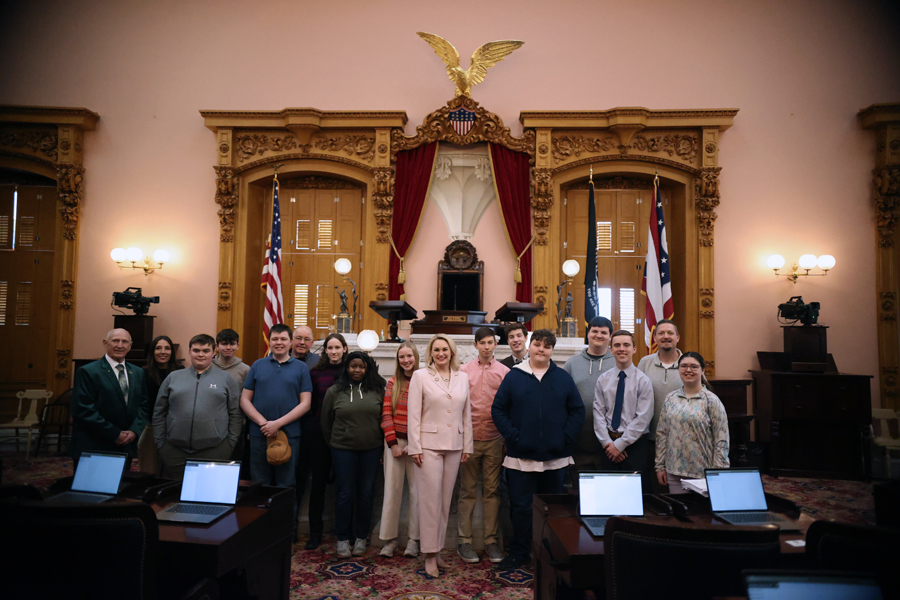The Story of Pastor Dietrich Bonhoeffer
By Kenneth Hammontree
 As Adolf Hitler and the Nazis seduced Germany, bullied a continent, and attempted to exterminate the Jews from Europe, a small number of clergy and saboteurs worked to destroy the Third Reich from inside. One such clergy was Dietrich Bonhoeffer, a Lutheran pastor.
As Adolf Hitler and the Nazis seduced Germany, bullied a continent, and attempted to exterminate the Jews from Europe, a small number of clergy and saboteurs worked to destroy the Third Reich from inside. One such clergy was Dietrich Bonhoeffer, a Lutheran pastor.
How does one person take a stand against tyranny and evil? How does a nation come under the spell of oppression and an evil government that can even control the churches? It can happen anywhere.
I remember reading about Bonhoeffer’s Cost of Discipleship, as required, in a course of study. It is impossible to understand Bonhoeffer’s stand against Hitler without becoming acquainted with the shocking capitulation of the German church to Hitler in the late 1930’s.
One must ask, how could the church of Martin Luther, of the reformation, the great teacher of the gospel of Christ and grace, have ever come to such an evil place. Even the Roman Catholic church who always supported the sanctity of life became silent.
The answer is that the true historical gospel summed up by Bonhoeffer as costly grace with a price had been over the years lost in the German churches. Legalism, and ritualism had taken over the church. Legalism and cold ritualism made it possible for Hitler to achieve his goals.
The Nazis loved legalism, ritualism, and control and that made it very easy for them to take control of every aspect of society. At the beginning of the war, it was possible to separate the Nazis from the German people and recognize that not all Germans supported Hitler and the Nazi party.
As the war trudged on, and there was more destruction and death, world opinion began to turn against the German people. How could this evil be stopped?
Who better to face the greatest evil of the 20th century than a humble and devout man of God. Dietrich Bonhoeffer, the theologian, pastor and spy with the moral courage to stand up against this monstrous evil.
The problem that he faced, was that he now was in the safety of America miles away from the evil spreading across Europe. He became concerned that the churches in Germany were supporting the new order and reset. The Nazis now controlled every aspect of the German nation. Red banners bearing the black swastika hung from the pulpits and services began with a fervent “Heil Hitler!”
Bonhoeffer knew he had to return to his homeland Germany, however in doing so could mean a death sentence for him. After returning to Germany on the last boat from New York to his beloved country he found out that all teachers and ministers had to give the oath of obedience to Adolf Hitler.
He decided to resign his university post and for two years went underground with a clandestine seminary for his “confessing Church,” a small minority of German pastors opposed to Hitler.
A relative working for the German counterintelligence discovered what the Nazis were up to in relation with the Jews and about the death camps all across Europe. He realized that Hitler had to be destroyed to stop the mass killings. Bonhoeffer was asked to assist in the plot and became involved with the Valkyrie plot to kill Hitler. It was also at that time, that Bonhoeffer was part of operation U7 in the effort to smuggle Jews into neutral Switzerland.
With the unsuccessful attempt on Hitler’s life on July 20, 1944, by Claus Von Stauffenberg, General Olbtricht and Henning Von Tresckow, Bonhoeffer realized that it was only a matter of time before the SS would come to him at Tegel Prison, where he was being held in Cell 92 for his activity with the underground church and operation U7.
It was during his time at Tegel that he corresponded with his family, friends, and Maria his fiancé. In 1992 Maria’s letters between her and Dietrich were published in a book called “Love Letters from Cell 92.”
After he was sent to a Gestapo prison, his letters to the outside world ceased.
As the Allies closed in on Berlin, he was transported to the concentration camp at Buchenwald. In those last weeks of the war Dietrich brought faith and peace to countless prisoners. When Hitler realized that his “thousand-year-Reich” was truly coming to an end, he drew up a list of inmates who must die before the Allies arrived. Bonhoeffer was top of the list.
As the Americans were nearing Buchenwald, Bonhoeffer was transported to Flossenburg death camp, on April 8th, 1945. The prisoners knew they had arrived at Flossenburg from the stench of death where the ovens could not keep up with the dead.
On April 9th, Bonhoeffer was executed by hanging with piano wire along with five others who were involved with the plot to kill Hitler. Two weeks later, on July 23, 1945, General Patton’s Third Armored division rode into Flossenburg, and liberated the death camp. In the following week, Hitler along with his wife Eva Braun committed suicide and the war was over.
The camp doctor wrote in his report of the execution of Bonhoeffer, “he said a short prayer and then climbed the steps to the gallows… and died well.” Bonhoeffer was one of many Germans who took a stand against Hitler knowing it was a death sentence.
Over 5,000 men and women died in the effort to rid Germany of the evil with the Valkyrie plot. The destruction and death of over 65 million souls could have been avoided if the German people would have become aware of the evil taking over their country. The only thing necessary for the triumph of evil is that good men do nothing.
Kenneth Hammontree is a WWII historian and writer from Ashland, Ohio











